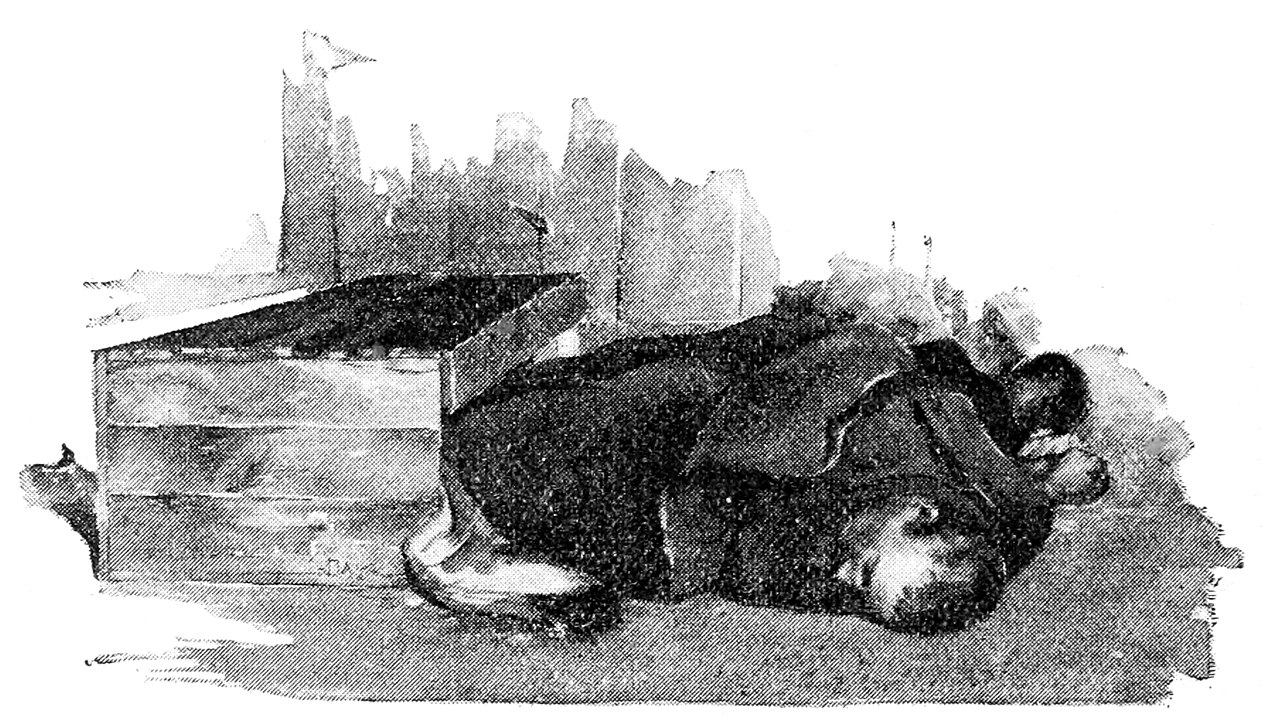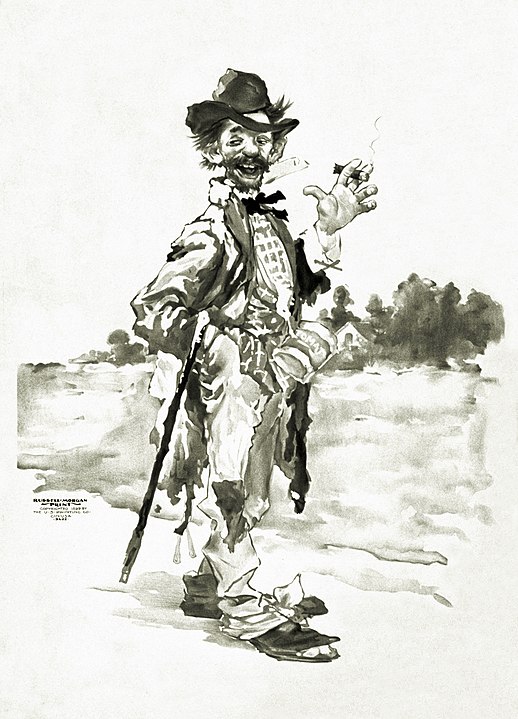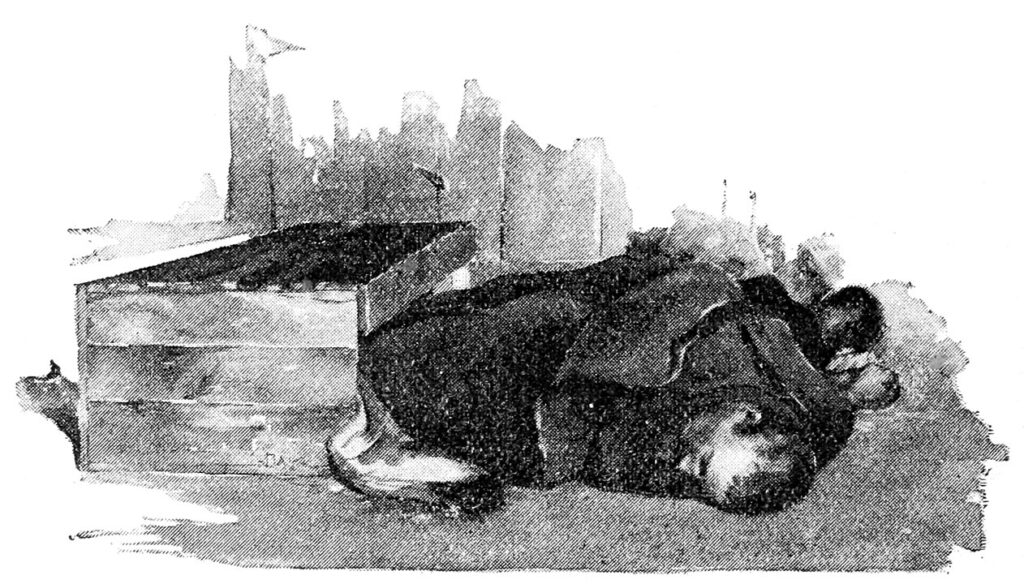
Tramp
- 27 February 2023
- by
The word Tramp has changed its meaning over time, from an itinerant worker tramping around on foot in search of employment, to the current meaning of a ne’er-do-well or a homeless person. But how did this change occur, and how can we challenge the misconception of the current usage of such a divisive epithet? To answer this we shall go back in time.
According to Dictionary (dot) com the word Tramp is derived from a Middle English verb meaning to “walk with heavy footsteps” and “to go hiking”. In Britain the term was widely used to refer to vagrants in the early Victorian period. The social reporter Henry Mayhew refers to it in his writings of the 1840s and 1850s. In 1840 Mayhew described “the different kinds of vagrants or tramps” to be found in Britain, along with the “different trampers’ houses in London or the country”. He distinguished several types of tramps, including people who made their living as wandering beggars and prostitutes.

The modern concept of the “tramp” emerges with the expansion of industrial towns in the early nineteenth century, with the consequent increase in migrant labour and pressure on housing. The common lodging house or “doss house” developed to accommodate transients. Mayhew identifies the problem of “tramping” as a particular product of the economic crisis of the 1840s known as the Hungry Forties. While John Burnett argues that in earlier periods of economic stability “tramping” involved a wandering existence, moving from job to job which was a cheap way of experiencing adventures beyond the “boredom and bondage of village life”.

How has this, almost idyllic, word changed over the generations to mean something akin to a worthless, layabout human being? In my opinion the last 2 words of the question just asked have been dropped from said question, just has it has been dropped in the consciousness of human society as a whole. Let me give you an example from personal experience.
For the last 5 years I have been volunteering with an organisation called Streets Kitchen, this name was chosen because the words “Soup Kitchen” have negative connotations regarding homeless human beings. Therefore, we believe that the removal of the significance of the negativity surrounding homeless people will, over time, improve the treatment of people experiencing these terrible life pressures, both in societal and legal policy terms.
If you come on my tour of Brick Lane we will discuss more in depth what it means to be a “tramp” nowadays, and how we can reverse the negativity of this term and others.
Thanks for reading and I’ll see you on Brick Lane!
Pete, your Brick Lane tour guide